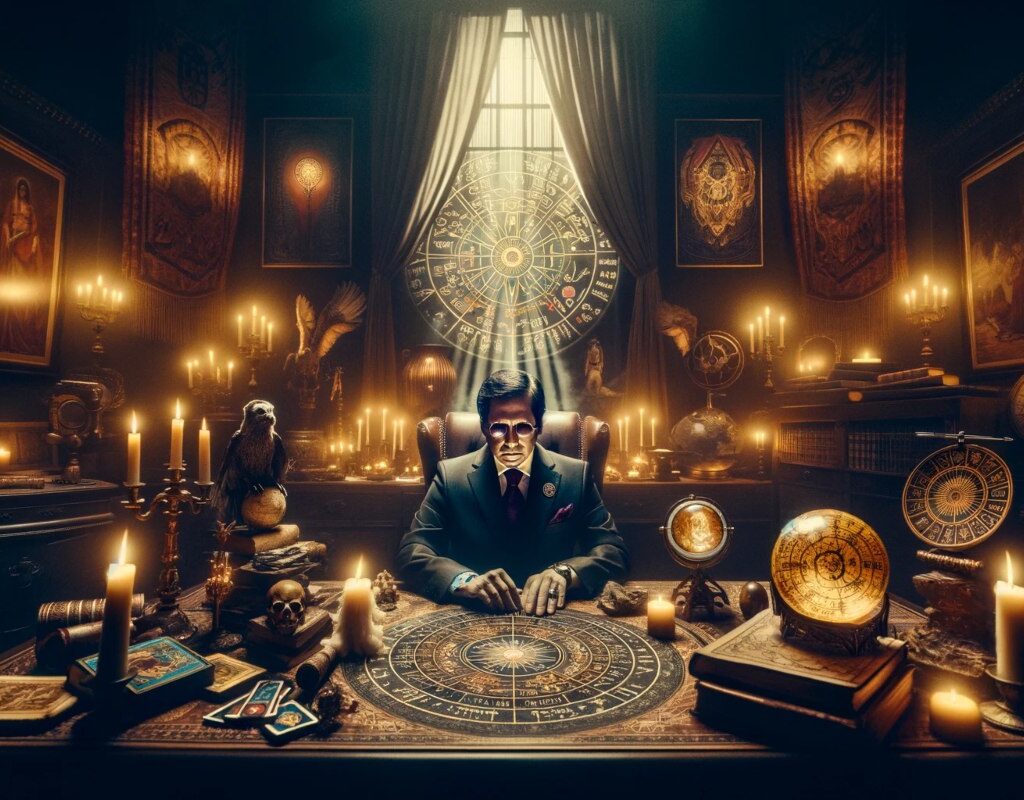The intertwining of political power with esoteric practices is not a novel phenomenon. Throughout history, pharaohs, emperors, kings, conquerors, presidents, and dictators have placed their trust in shamans, oracles, witches, mediums, and spiritual guides to maintain their dominion.
The Role of the Esoteric in Latin America
Tsarina Alexandra Romanov was deeply reliant on Rasputin, her confidant. Abraham Lincoln, the sixteenth president of the U.S., exhibited a keen interest in spiritualism. Adolf Hitler entrusted his astrological decisions to Karl Ernest Krafft, his astrologer.
In Latin America, similar esoteric influences are reflected in numerous anecdotes. Leaders in this region have often turned to practices from syncretic religions such as Santería, Palo Mayombe, Umbanda, and Voodoo. Consulting the stars or reading tarot cards is as common as drinking coffee.
Francois Duvalier
The Use of Occultism in Haiti
The Haitian dictator Francois Duvalier, known as Papa Doc, utilized occultism to consolidate his power. He proclaimed himself as the god of death in Voodoo, a religion he legitimized in Haiti. His countrymen feared him more for his alleged supernatural abilities than for his tyrannical rule (1957-1971) backed by the Tonton Macoute.
Duvalier claimed responsibility for the assassination of John F. Kennedy in 1963, alleging he used spells against him. This followed Kennedy’s pressure on Haiti over the embezzlement of international economic aid funds by the Duvalier family.
Esotericism in Argentina
José López Rega and Juan Domingo Perón
Argentine President Juan Domingo Perón is credited with seeking spiritual consultancy and advice from his secretary, José López Rega, known as the Creole Wizard or the Rasputin of the Pampas. López Rega, associated with Umbanda, was considered capable of resolving human and spiritual problems.
However, López Rega’s activities weren’t confined to esoteric practices. He is linked to one of Argentina’s darkest episodes: the crimes of the Argentine Anticommunist Alliance or Triple-A, a far-right paramilitary organization he led in the 1970s.
Astrology in the Peruvian Government
Héctor Faisel and Alberto Fujimori
Former Peruvian President Alberto Fujimori was also influenced by esoteric beliefs. Following the recommendation of Vladimiro Montesinos, Chief of the National Intelligence Service, Fujimori sought the guidance of Argentine astrologer Héctor Faisel. He sought astrological advice to extend his tenure.
Mexico
Esotericism in Politics
In Mexico, the fascination with political spiritualism is quite pronounced. Mexican journalist José Gil Olmos, in his book “Los brujos al poder,” details several cases. Notably, he highlights Marta Sahagún, the former First Lady of Mexico, and her alleged involvement with witchcraft to influence her husband, former President Vicente Fox.
According to Gil Olmos, in the year 2000, Sahagún hired a Cuban santero, known as Father Campos. Her goal was to perform a binding spell to marry Fox, with whom she had a long-term relationship.
Evo Morales and Indigenous Traditions
Evo Morales, staying true to his indigenous roots, similarly sought guidance from spiritual leaders of his community. In January 2010, shamans organized an Aymara possession ceremony to bless his second term, demonstrating the amalgamation of the political and spiritual realms.
These stories, whether real or urban myths, stir both fascination and morbidity. They are part of everyday life in Latin America, a region where even the most skeptical might find themselves drawn to a Tarot reading.
The intricate relationship between political power and the esoteric in Latin America is not just a matter of history but a reflection of the culture and beliefs of the region. This article has explored how the mystical intertwines with leadership, offering a unique perspective on Latin American politics.




